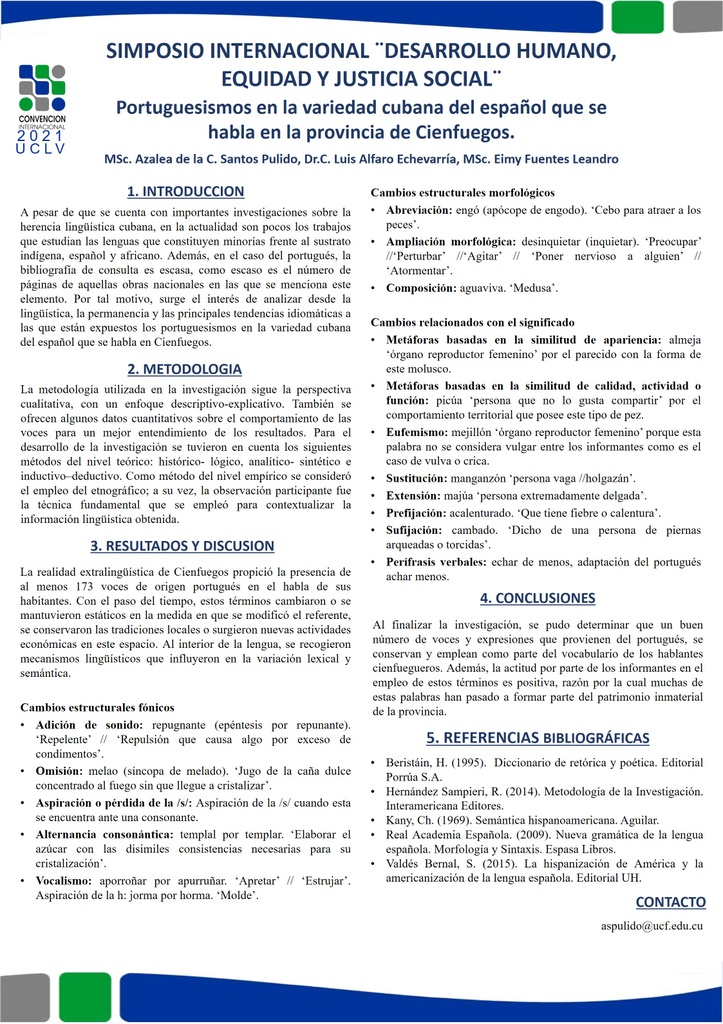Executive Secretary

Simposio Internacional “Desarrollo Humano, Equidad y Justicia Social"

The present linguistic study aims to describe the use of Portuguese in the Cuban variety of Spanish spoken in the province of Cienfuegos, since although there is important research on the Cuban linguistic heritage, at present there are few works that study the languages that constitute minorities against the indigenous substrate, Spanish and African. To do this, a corpus made up of 173 Portugueseisms is analyzed with the aim of verifying their employment and permanence in Cuban Spanish. The methodology used in the research follows the qualitative perspective with a descriptive-explanatory approach. The methods of the theoretical level that are used are the historical-logical, the analytical-synthetic and the inductive-deductive; in addition, at the empirical level, the ethnographic method, observation and analysis of documents are used. The corpus to be examined is composed of nouns and adjectives of Portuguese etymology that name referents of the environment of the locality under study, as well as verbs that characterize the most frequent actions developed in everyday life. Finally, the linguistic mechanisms present in the use and variation of the Portugueseisms that make up the sample are identified and described, where the phonic and morphological structural changes, the use of metaphors, euphemisms, substitutions and extensions, as well as the presence of combinative analogy and verbal periphrasis stand out.
El presente estudio lingüístico tiene como objetivo describir el uso de portuguesismos en la variedad cubana del español que se habla en la provincia de Cienfuegos, ya que a pesar de que se cuenta con importantes investigaciones sobre la herencia lingüística cubana, en la actualidad son pocos los trabajos que estudian las lenguas que constituyen minorías frente al sustrato indígena, español y africano. Para ello, se analiza un corpus conformado por 173 portuguesismos con el objetivo de comprobar su empleo y permanencia en el español cubano. La metodología utilizada en la investigación sigue la perspectiva cualitativa, con un enfoque descriptivo-explicativo. Los métodos del nivel teórico que se emplean son el histórico–lógico, el analítico–sintético y el inductivo–deductivo; además, en el nivel empírico se utilizan el método etnográfico, la observación y el análisis de documentos. El corpus a examinar está compuesto por sustantivos y adjetivos de etimología portuguesa que nombran referentes del entorno de la localidad objeto de estudio, así como verbos que caracterizan las acciones más frecuentes desarrolladas en la cotidianeidad. Finalmente, se identifican y describen los mecanismos lingüísticos presentes en el uso y variación de los portuguesismos que conforman la muestra, donde sobresalen los cambios estructurales fónicos y morfológicos, el empleo de metáforas, eufemismos, sustituciones y extensiones, así como la presencia de la analogía combinativa y las perífrasis verbales.
About The Speaker

M. Sc. Azalea de la C. Santos Pulido
